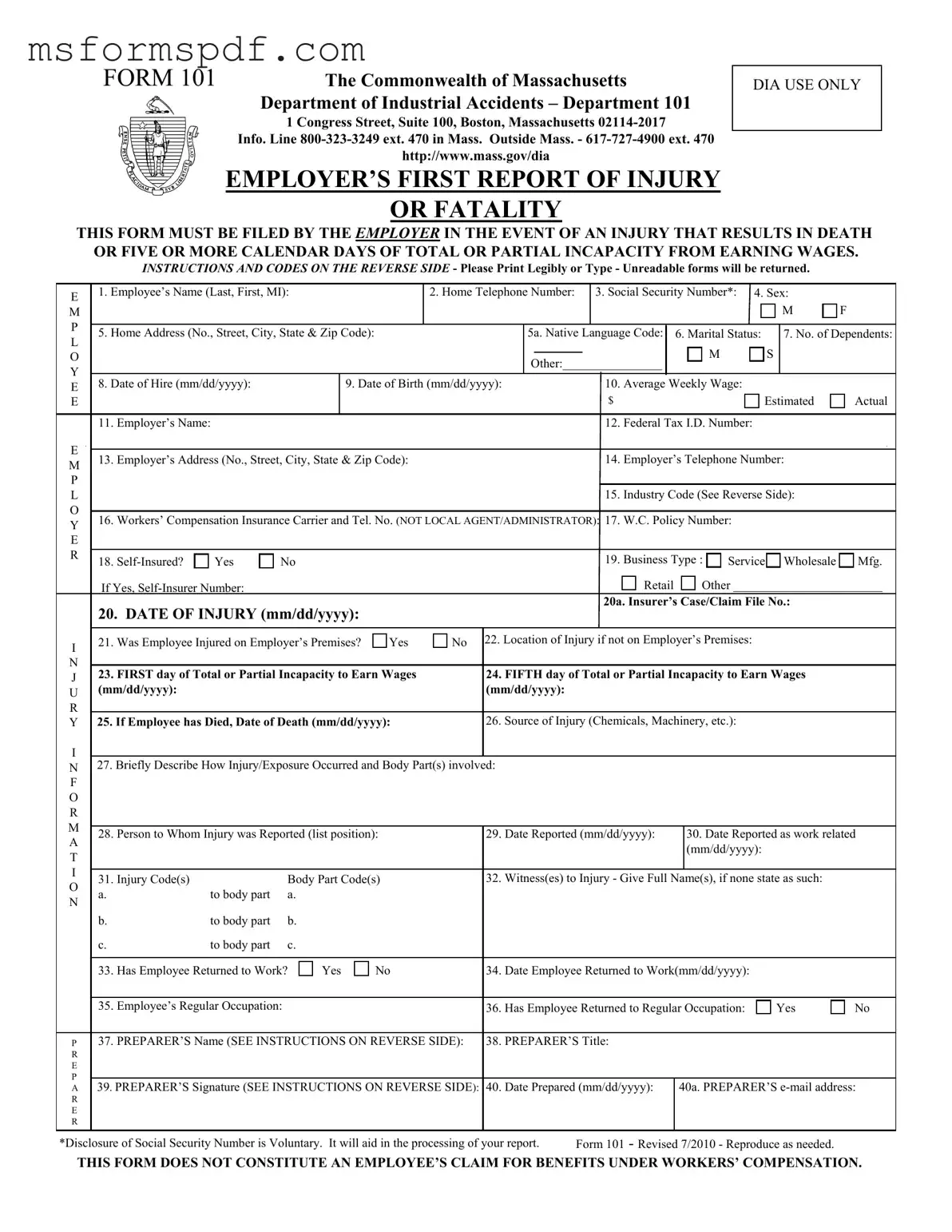Free 101 Massachusetts Template in PDF
The 101 Massachusetts form is a critical document used by employers to report workplace injuries or fatalities. This form must be submitted when an injury results in death or incapacity lasting five or more calendar days. Timely and accurate completion of this form is essential for compliance with Massachusetts workers' compensation regulations.
Launch Editor Now

Free 101 Massachusetts Template in PDF
Launch Editor Now

Launch Editor Now
or
➤ 101 Massachusetts PDF Form
Just a moment — finish the form
Fill out 101 Massachusetts digitally — no scanning, no printing.